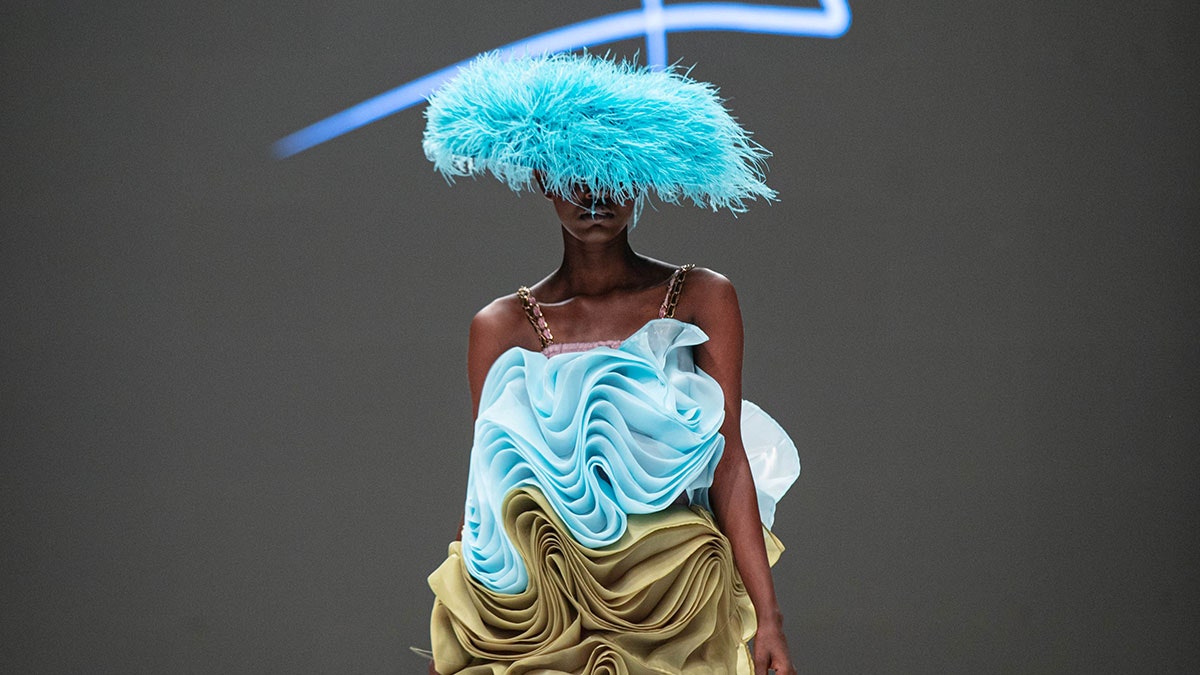
This year, Lagos Fashion Week had a record number of sponsors including main sponsor Heineken, Ivorian e-commerce platform Anka, telecom company MTN and skincare brand Bioderma. Although it’s yet to reach pre-pandemic numbers in terms of attendees and number of shows, the organisers say the event is slowly regaining momentum. Last year, some 3,900 guests attended the five-day event, while this year approximately 4,400 attended. Press, popular influencers and well-known photographers were in abundance.
Still missing are international buyers, who have never had a strong presence at Lagos Fashion Week. Instead, designers see it as an opportunity to make ties with local stores and connect with their home consumer. Retailers from major luxury retailers in Lagos were present including Alara and Temple Muse.
Since 2012, African designers have been welcomed to Lagos Fashion Week, including South Africa’s Maxhosa Africa and Imprint, as well as Ghana’s Christie Brown. However, it’s becoming a priority for younger, emerging designers who believe there’s a potential to build brand awareness in one of Africa’s buzziest fashion capitals. This year, more than 10 designers held off-site shows, meaning Lagos Fashion Week did not handle the production, casting or venue. Designers who choose to showcase their collection at the main site, located at the Federal Palace Hotel in Lagos, were able to use those services.
The goal for event founder Akerele was to broaden the scope and talent visible at the event. “This refresh was deliberate. After 12 or 13 years, we can’t have the same designers showing. There’s always room for them but there’s always room to support new designers on the calendar,” she says.
Alongside Lagos Fashion Week was a Unesco conference coinciding with the launch of the recent African fashion report. To a room full of designers, government officials, industry leaders, Unesco unpacked the potential opportunities and challenges in the African market. Alongside the talk led by Akerele and Toussaint Tiendrebeogo, secretary of the Unesco 2005 convention on the protection and promotion of the diversity of cultural expressions, designers took to the stage to share their experiences of building a brand in Africa. Seven designers and business owners including Cameroonian designer Imane Ayissi, founder of his eponymous couture house, and Nelly Hagen-Deegbe, founder of Ghanaian luxury womenswear brand Duaba Serwa were part of the roundtable discussion.
